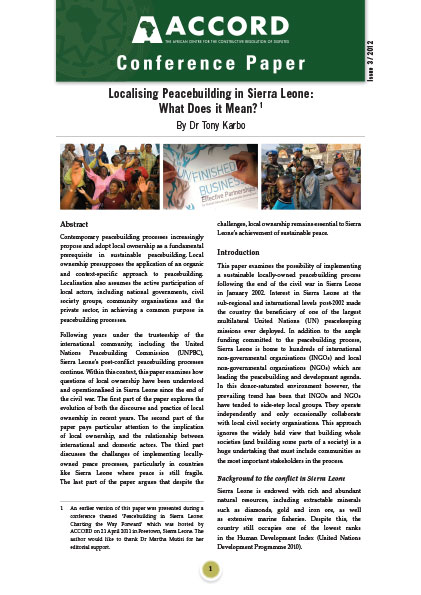
The transition from international to local ownership provides the perfect barometer to gauge the health and general well-being of a country’s peacebuilding process. It offers the opportunity to assess the past, plan for the future and, in the process, nurture the environment that fosters and cultivates opportunities for broader participation in issues of national interest. Peacebuilding, with its emphasis on decentralised empowerment is, in many ways, an exercise in social engineering. It offers one of the few opportunities for marginalised groups to engage with the power structures in ways that enhance the boundaries of power. Without doubt, a vocal and vibrant grassroots citizenry improves governance at various layers of society and contributes to our understanding of the peace-development continuum. But what exactly is local ownership of a peace process, and what is its relationship to sustainable peacebuilding in the context of Sierra Leone? This paper attempts to address these questions.
